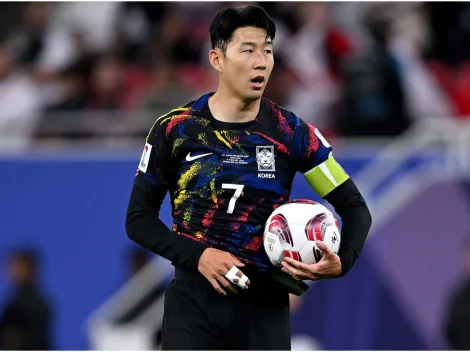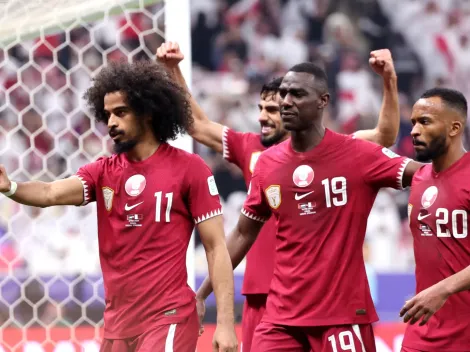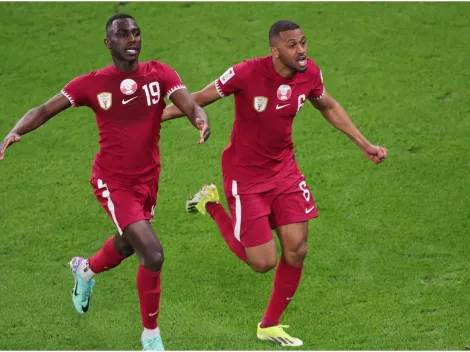With its appointment as the host country for the 22nd edition of the FIFA World Cup, Qatar has been given the opportunity of a lifetime in many ways: media exposure, tourism and economic growth, and sporting prestige. They are well aware of this and do not intend to waste it.
The upcoming World Cup Qatar 2022 will be a turning point in the history of this tournament in many aspects. It will be the first time that this prestigious event will be organized in the Middle East and also the first time that it will not be played in the middle of the year (May, June or July), but at the end of the year (November 20- December 18).
So, if several other almost centenary customs have been broken (26-player squads, 5 substitutions per team per match, the first female referees to participate in a World Cup), why not think that the host country ofcould enter history by breaking all predictions?
The fate of the FIFA World Cup host countries
Playing this prestigious tournament in front of their own fans is by no means a guarantee of success for the host nations of the World Cup. In 21 editions of the tournament in its 92-year history, only six times have these National Teams been able to win the trophy.
The history of the FIFA World Cups began in 1930, when the first host country, Uruguay, was crowned. The next edition, held in 1934, continued that trend by being won by Italy. After a hiatus due to the Second World War, no host country was able to win the tournament again until 1966 when England did it, not without some controversy.
The seventies were the most fruitful decade for the hosts of the World Cups held in those years. Only Mexico was unable to win the tournament it hosted, something that Franz Beckenbauer’s Germany in 1974 and Mario Kempes’ Argentina in 1978 did achieve.
The last time a FIFA World Cup host nation became world champion was in France 1998, when the team coached by Aime Jacquet and led by Zinedine Zidane was crowned in front of a packed Stade de France with a 3-0 victory over Brazil.

Zinedine Zidane, FIFA World Cup 1998. (Stu Forster /Allsport)
How does Qatar plan to replicate the 1998 World Cup?
The Qatari national team’s manager, Spaniard Felix Sanchez, is already a historic figure in Qatari soccer. He arrived to work on the detection and development of young soccer talent and worked his way up through the youth ranks to take charge of the senior team. The highlight of his work portfolio: the conquest of the Asian Cup in 2019, the greatest achievement in the soccer history of that nation.
True to his irreverent spirit and tireless work ethic, Felix Sanchez has designed a plan to ensure that The Maroons are not just tournament entertainers, but that they have real aspirations of competing against the likes of Messi’s Argentina, Mbappé’s France and Neymar Jr.’s Brazil to win the FIFA World Cup. And the path is simple: hard work.
It is well known that one of the biggest handicaps facing National Teams managers is the limited time they have to work with their players. While they have many quality players at their disposal, the opportunity for them to master their idea of the game is very limited. That’s why Sanchez made the dream of every head coach of a national team come true: to have uninterrupted work time for Qatar 2022.

The Qatar National Team during its camp in Marbella, Spain. (Qatar Football Association)
According to reports from the BBC, the Qatar team would arrive at the upcoming FIFA World Cup with a six-month camp with all its players, which should translate into absolute rapport and greater effectiveness than the rest in terms of the execution of the game model.
The Qatar National Team’s training camp began with a stay in Spain, the land of its manager, and then moved to Austria. The twofold aim was to train and play matches in preparation for the upcoming FIFA World Cup.
The immediate antecedent of this suigeneris model of work, and the main incentive for it to work for The Maroons in Qatar 2022, is what Korea did in the 2002 World Cup. The Asian Tigers were hosts, along with Japan, and achieved the best performance in their history in this tournament: they reached fourth place, with a brilliant on-field management by Dutchman Guus Hiddink.
Qatar’s ambition to match France’s 1998 achievement at the upcoming FIFA World Cup 2022 has come at a price, and it is being paid for by the Qatari league teams, which have had to release their stars so that their National Team can train like any other club in the world. Felix Sanchez has already put his best cards on the table so that The Maroons can surprise the world.

Qatar National Team. (Qatar Football Association)




